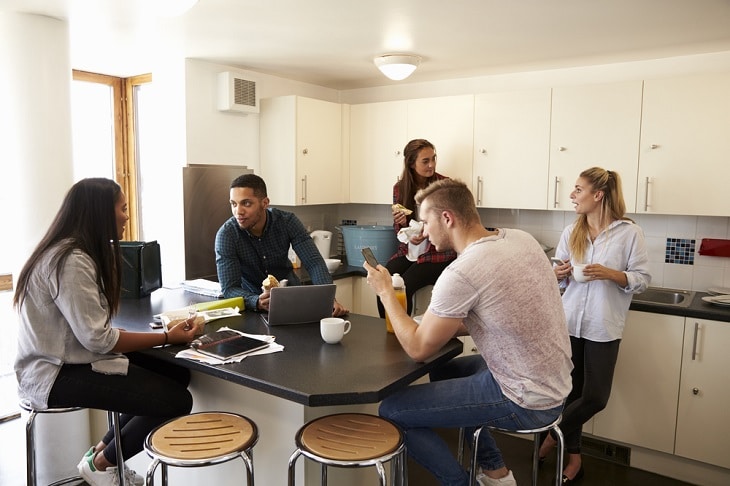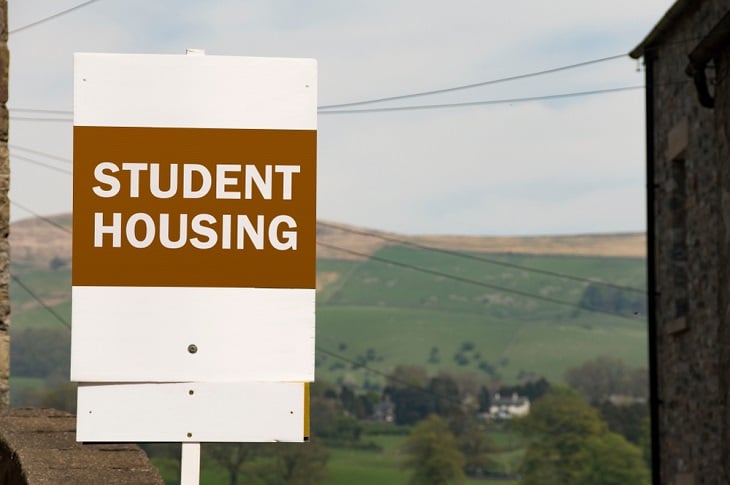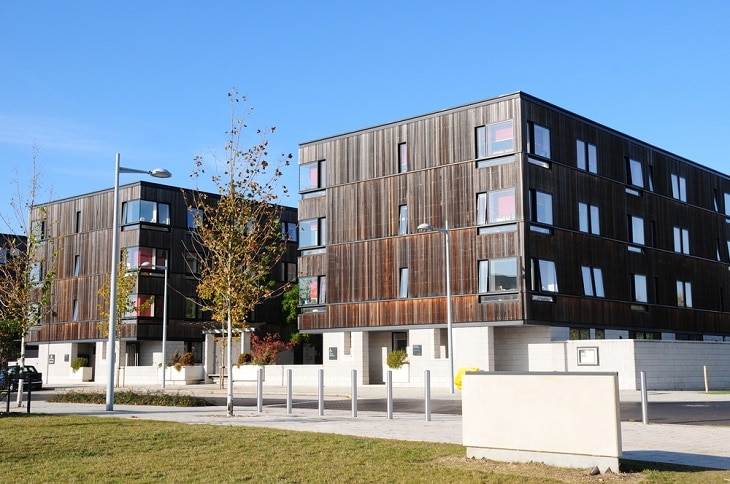Jasmine Birtles
Your money-making expert. Financial journalist, TV and radio personality.


Student accommodation is increasingly seen as a profitable area for property investors. There are various ways to make money from student accommodation from buy-to-let and renting to local students, to investing in purpose-built blocks and special types of REITs (real estate investment trusts).
This first article is looking at buying property and renting it out as student accommodation. The second article in the series explains how to invest in student accommodation without actually buying property.
We have explored the various options, and here is our essential guide to letting property to students.

Buying a property in order to let it to students is the most simple way people invest in student accommodation.
The two most important things to remember if you chose to buy-to-let to students are:
Obviously, it’s important to buy property in a city where there are a lot of students, and a yearly influx of them.
Even if there are a number of colleges in the area, it’s worthwhile checking with local lettings agencies – and even the colleges themselves – if the majority of their students live outside of campus or if they have accommodation provided already. The latter isn’t great news for someone looking to let property out.
Usually the first-year students are given digs, but the second and third-years have to fend for themselves. This is what you want to hear in your area.
For more, see our article about buying a property to make money.
Location is the most important factor to consider when looking to buy a property for student let.
A matter of a few streets can make a big difference between having full occupancy every year or not. So even though a five minute bus ride might leave you a property £50,000 cheaper, it’s not necessarily worth the saving if there are no student tenants.
However, while it is typically best to buy properties as close to the university as possible, the best places to buy will greatly depend on your particular location and the dynamic of the city.

When looking for the right property the first question to ask yourself is ‘what are students looking for’?
Gone are the days when students will settle for a grotty alcove of mould and dirt simply because it’s an affordable place to live. They expect some more quality these days.
When catering to prospective student tenants, it’s important to know what they value. Here are some tips of what to look out for when purchasing a house to student let.
As mentioned above, location is a key factor to consider when buying a student property. Look for properties as close to the university as possible. Students generally don’t mind living on a noisy street or overlooking a convenience shop so you don’t need to worry about those details.
When looking to buy the property itself, bear in mind that students don’t generally want a garden to nurture and maintain. So go for flats and houses that don’t have a garden or period features that you need to look after regularly. However, if you find an ideal property that has a small garden, turn it into a patio and that will make it much easier for everyone. Add something fun, like a barbecue, and it could be even more attractive to students!
Students aren’t typically in need of living rooms or play areas so be sure to maximise the rooms you have .Students tend to look for houses in groups, so if you can turn a lounge into another bedroom, you could have just turned your house from a no into a yes.
Be aware that if your house is three or more stories high, or has more than two unrelated inhabitants, you will need a licence to rent it out. Houses that have two unrelated tenants are best as they do not classify as HMO (House in Multiple Occupation) properties.
If you intend on financing your purchase – in other words, getting a buy-to-let mortgage – be aware that not all banks are willing to provide a loan for student accommodation. Make sure you have enough for the deposit to back your investment.
Get in touch with our mortgage partners, L&C Mortgages. They are brokers and will be able to put you in touch with lenders that are happy to finance these sort of investments.

There are two main types of insurance that you should have as a landlord:
Building insurance covers the structure of your property from doors to floor, windows and ceilings. If you have a mortgage on the property, it is likely that the bank will require you to have building insurance.
This is to insure pieces of furniture or other interiors that have been damaged as a result of the tenancy. Depending on the quality of the furniture, this is not always necessary. This is not the same as Student Possessions Insurance which covers the tenants goods. This is something that the students themselves should consider taking out.
Optional insurance policies you might like to take out for peace of mind are:
Use our home insurance comparison tool here.
Remember, if there is any gas in the property you need to have an annual gas check by a qualified plumber. They need to give you a certificate to prove that the gas appliances are safe, and carbon monoxide free.
Also, check your local landlord laws to make sure you are complying with all the regulatory checks, and to ensure that your tenancy agreements are up to date.
Read our first-time buyer guide on how to get a mortgage here.

Summer holidays can pose a problem for landlords letting for students, as it’s common for students to leave for the summer. They also tend to move house when the new term rolls around.
With this in mind, there are three solutions to ensure you’re still making money during the summer.
By offering the property for the 52 weeks, you can be sure to receive monthly rent payment regardless of whether or not they are using the property. Although this seems appealing, know that some students will not pay for a full year if they do not intend on being there to use the property.
As most students will go back home for their summer holiday, charging half the rent during the summers months may be an arrangement that suits both you and them well. Assuming they vacate the property, you can use this time to renovate the property and do any work that needs to be done before the next tenants move in. It also gives students somewhere to store their things over summer!
Providing the tenants with a contract that begins and ends with the academic year (typically around 41 weeks) enables you to let your property to students that come to study in the summer. These might often be foreign exchange students. Speak to the summer programme coordinators to see how most students go about finding short let accommodation.
Advertising your property through the university is often the best route to take as you save on agency fees and, as an approved supplier, you have a direct channel to your potential tenants. It is important that you vet your tenants as you would anybody. Be sure to conduct a credit check, get a reference from them and a parent/guardian guarantor in case any financial issues arise in the future.
As with all investments, there are good and bad elements. Ying Tan, the Managing Director of The Buy to Let Business, outlines the main advantages and disadvantages of letting to students:
